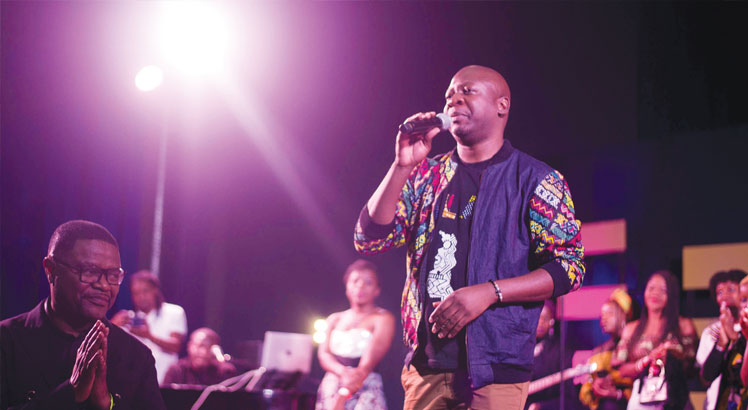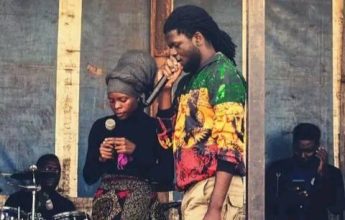Rise, fall of Balaka reggae
 It was a powerful genre such that for many years, it dominated Malawi music and gave it a touch. Today, it is no more. It has lost its appeal. What happened to it?
It was a powerful genre such that for many years, it dominated Malawi music and gave it a touch. Today, it is no more. It has lost its appeal. What happened to it?
Press rewind and go back to the late 90s or early years of 2000s. Are you there? Fine.
It is noon on an easy Sunday and you are tuned to a piercing voice of Felix Pachani’s Malawi Top 20 on MBC Radio 2. Pay an attentive ear to the songs that make it to the top. What kind of songs are they?
Press fast forward and back to the present.
Surely, if you were a faithful, regular listener of Pachani’s programme, you would definitely agree that in late 90s and early 2000s, the chart was always dominated by a particular family of artists.
If it was not Lucius Banda on the number one spot, then it was Pat ‘Abig’ Tung’ande or Billy Kaunda or Mlaka Maliro. Even if Charles Nsaku could not claim the number one spot, at least, you were assured of seeing him on the chart together with the likes of Coss Chiwalo, Charles Sinetre or the late Paul Chaphuka. You can also add Paul Subili and Rod Valamanja to the list. These were the artists of the time.
What unified them is not just their regular domination of the Top 10 chart. Or their conscious compositions that, with a touch of philosophy, articulated the daily struggles of the common man.
Rather, it was their beat. They all conveyed their message in reggae-like genre, known in music circles as Balaka Reggae.
Developed in the early 90s by veteran artist Paul Banda, and perfected by his brother, Lucius, Balaka Reggae was a powerful touch that towered Malawi’s music circles for years. It was the touch that created a practical template that upcoming artist could easily fit in.
And it was this touch that almost gave Malawian music an identity. Slowly it was becoming what Kwaito is to South Africa or kwasa-kwasa is to Democratic Republic of Congo (DRC).
But today, things have changed. Balaka Reggae is not that vibrant as it used to be.
The first symbol of that is the conspicuous missing on the music scene of most of the artists that shaped the touch.
With the exception of Lucius Banda, how much do the likes of Charles Sinetre, Pat Tung’ande, Coss Chiwalo, Rod Valamanja, Paul Subiri, Mlaka Maliro and Billy Kaunda tower the music scene today than before?
That is not all.
If you look at the type of beats upcoming artists like Maskal, Dan Lu and Moses Makawa use, it is a complete antithesis of the Balaka Reggae.
Is Balaka reggae falling?
“Balaka reggae is still there. It has not fallen. What has happened is that, over the years, the touch has gone through a process of purification and improvement. This has made the touch to lose some of the elements we used to associate it with,†says Lucius.
He adds that the symbol of the purified reggae is potent in the contemporary artists like Moses Makawa and Kang’oma Chiterera.
“What these artists are doing is that they are fusing Balaka Reggae with Zimbabwean Rhumba. But if you look at the basics of their music, you will note it came from the Balaka touch,†he says.
Chiwalo, one of the country’s gifted guitarists and also a pioneer of Balaka Reggae, agrees with Lucius that the touch is still there.
However, he feels that the touch is much stronger than before.
“The touch of Balaka Reggae was in line with the production system we have at I.Y Studios in Balaka. The studio had a sound template that helped to maintain the touch. But as other artists moved to other productions, they started producing different sounds. But this does not suggest the fall of Balaka Reggae,†he says.
Despite Chiwalo’s praise of the touch, most artists who defined it then, himself included, do not enjoy the popularity they had before. In fact, he admits that their music does not receive the reception it used to.
“Everybody has his time. We had our time in Balaka, now it’s gone. God has now given time to others,†says Chiwalo.
However, Chiwalo argued that change in reception will not force his Alleluya Band to abandon the music that defines them.
“As a band, we will continue with the touch. But for artists within the band who wish to go solo, we give them liberty to make the music of their choice,†he advances.
If artists agree that the touch that defined them is no longer as vibrant as it used to be, what does this speak about the nature of music, and also about being an artist in a developing country?
“Music is dynamic. It changes with time. As artists, we also need to adapt with the change to keep in line with the people’s changing aspirations,†says Lucius.
He adds: “I cannot keep on playing the same type of music which is in my first album. The audience that enjoyed that touch is long gone. I need to go with the people of the time.â€
Some might condemn Lucius as a nomadic artist; one who cannot hold on to a single style like Oliver Mtukudzi. But Lucius has a word for such critics.
“It is possible in other countries for an artist to stick to a single touch. Not in Malawi. Here, to survive, you need to be mindful of the changing aspirations of people that come to your shows,†he says.





